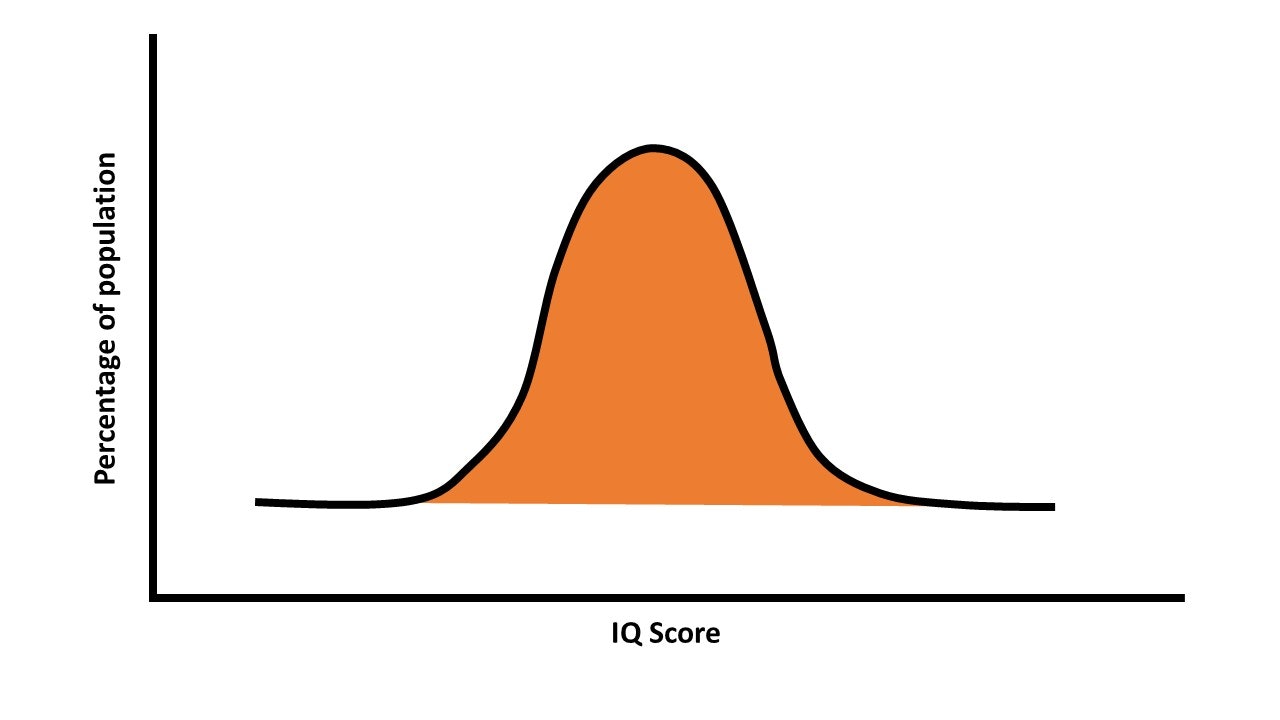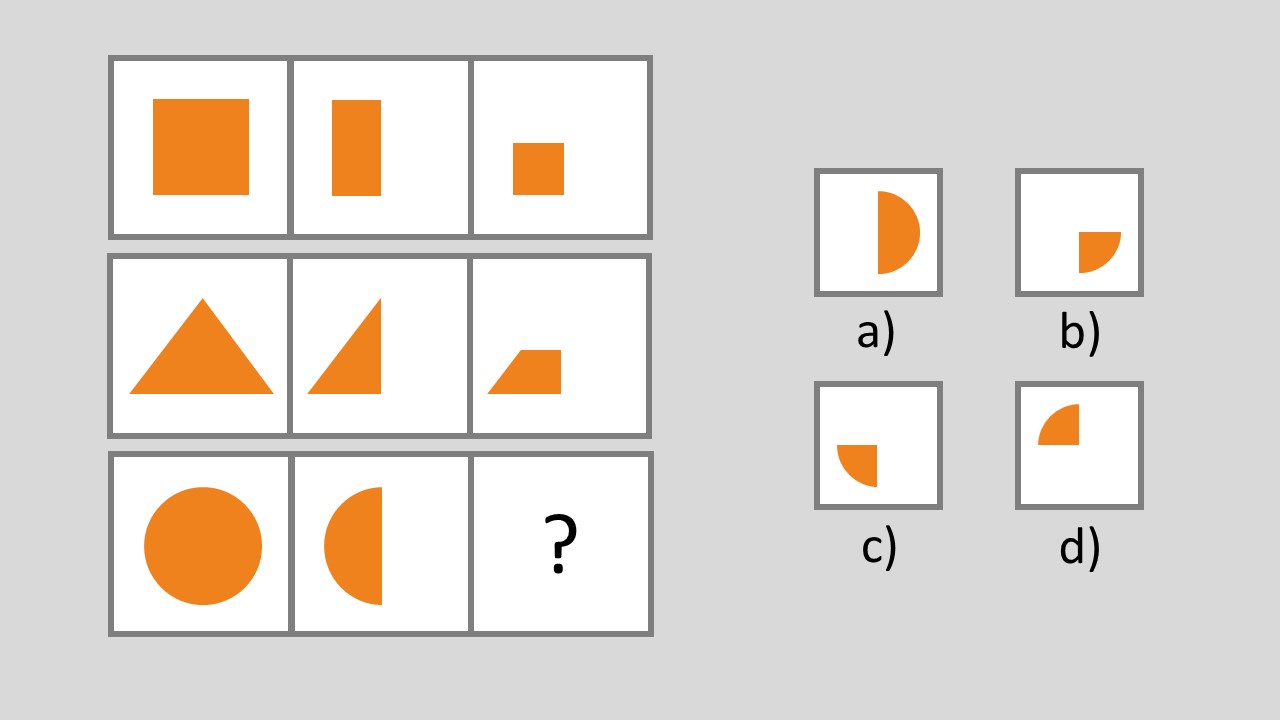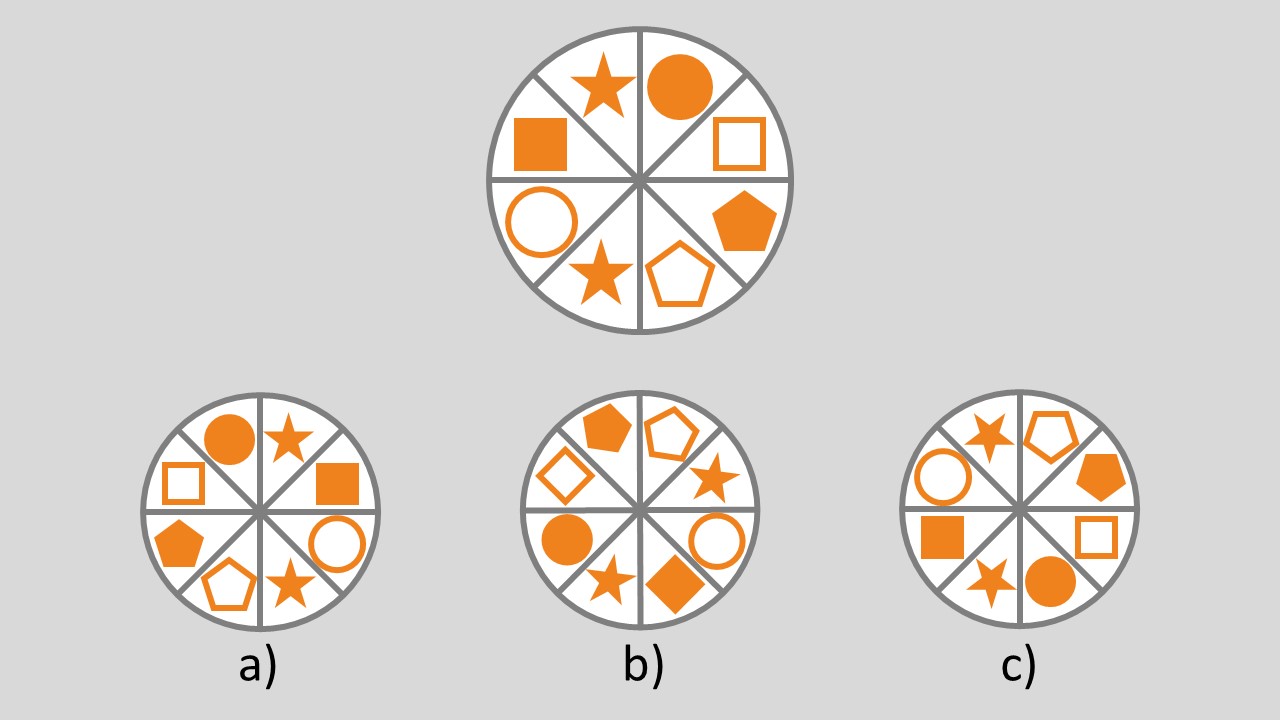IQ Scales (2026 Review)
Updated November 20, 2023
- IQ Scales: What Is the Best Score?
- IQ Scales - What Are the Factors That Affect an IQ Test Score?
empty
empty
empty
- IQ Scales - What Type of Questions Are Included in an IQ Test?
empty
empty
empty
empty
- How to Prepare for an IQ Test in March 2026
- IQ Scales - Commonly Used IQ Tests in 2026
- IQ Scales - Has Global IQ Changed Over the Years?
- Final Thoughts
An IQ (intelligence quotient) score measures an individual’s intelligence in terms of their reasoning and problem-solving abilities.
The IQ scale is a numerical one, increasing in value to reflect a higher level of intelligence. For instance, a gifted individual will score over 145, whereas someone with an average IQ will score in the range of 90 to 110.
Often, an IQ test score will be stated as a range, such as an above average IQ, rather than a specific numerical score such as 95 or 127.
IQ test scores are not calculated in isolation. Instead, they are based on a norm group using an average score of 100. This assumption of 100 as the average IQ score is demonstrated by the Bell Curve diagram below.

The horizontal axis shows the different scores that an individual may achieve. The vertical axis shows the number of people. The line of the bell curve reflects how many people achieved each score.
According to the diagram, 100 is the most common score and hence the accepted average. It is estimated that around half of the world’s population have an IQ score between 90 and 110.
With the majority of people who are tested scoring around 100 as an IQ, those with scores vastly above or a long way below this average tend to be few and far between.
IQ Scales: What Is the Best Score?
If the best IQ test highest registered IQ score, in a range between 250 and 300, was achieved by American child prodigy William James Sidis.
Other notable figures with high IQ scores include Friends actor Lisa Kudrow (IQ 154), theoretical physicist Stephen Hawking (IQ 160) and chess grandmaster Garry Kasparov (IQ 194). Albert Einstein was estimated to have an IQ score of between 160 and 190 but he was not officially tested.
The ranges of IQ score categories are generally accepted to be:
- Over 160 – Exceptionally gifted
- 145 to 159 – Gifted
- 116 to 144 – Above average
- 85 to 115 – Average IQ score
- 71 to 84 – Below average
- Under 71 – Low
Individuals with an IQ score of 180 or more are deemed to be profoundly gifted.
IQ Scales - What Are the Factors That Affect an IQ Test Score?
The level of your intelligence, unlike knowledge, is generally in place when you are born.
However, there are still factors that may affect your intelligence over time, your performance during a test and, ultimately, your IQ test score.
Environmental Factors
Environmental factors are often the ‘nurture’ element of an individual’s upbringing, such as the level of wealth their family had, the region where they were brought up and the education they received.
For instance, a child given more access to education and stimulation is more likely to improve their IQ level than a child with limited educational opportunities.
Another environmental factor is health. A healthy individual is more likely to perform well in a test than someone who feels unwell or is distracted by pain.
Equally, a healthy individual may find it easier to take up learning opportunities that improve their IQ than someone who goes through regular periods of illness.
The Specific IQ Test
All IQ tests produce a mathematical score or range based on a standard deviation from the average score of 100.
However, their content may vary, for instance, focusing on the below, or a mix of the below that is specific to the aim of the test.
- Visual questions
- Verbal questions
- Abstract-reasoning problems
- Arithmetic
- Vocabulary
- General knowledge
Familiarity With Question Format/Test Conditions
Your performance in taking a test can be affected by how familiar you are with the type of questions you face and the test conditions in general.
Familiarity with question format can improve your confidence, provide the opportunity to develop a test strategy and greatly improve your time management during a test.
IQ Scales - What Type of Questions Are Included in an IQ Test?
One of the main differences between the range of IQ tests that are available today is the type of content they include, i.e. the type of questions.
However, IQ tests will generally contain some, if not all, of the following question types:
Verbal
Verbal reasoning is the ability to understand a concept and problem solve through the use of words. How well can you interpret written data and proceed to a conclusion?
Example Verbal Question
Three members of staff arrive at the office on Monday morning. Anne arrives at 8:30 a.m. and gets a coffee from the office kitchen before going to her desk around five minutes later. Robert arrives at 8:47 a.m. but makes a personal call from his mobile phone before arriving at his desk.
He is on the phone for 23 minutes. Ellen arrives at 8:52 a.m. and is intercepted on the way to her desk by her manager. She reaches her desk at 9:15 a.m.
How many members of staff are at their desk before 9:00 a.m.?
a) 1
b) 2
c) 3
Numerical
Numerical reasoning questions generally ask you to carry out straightforward calculations with the use of tables of data and/or visual representations such as graphs.
Example Numerical Question
| Department | Business Expenses Claimed ($) | Total ($) | ||
|---|---|---|---|---|
| Travel | Accommodation | Food/Drink | ||
| 1 | 578 | 2,200 | 339 | 3,117 |
| 2 | 889 | 0 | 458 | 1,347 |
| 3 | 0 | 0 | 1,189 | 1,189 |
| ? | ||||
For one month, three sales teams submit the above expenses claims. What is the total amount of expenses claimed and which team spent the least on food and drink?
a) $5,653 and team 2
b) $5,563 and team 1
c) $5,653 and team 1

Logical
Logical reasoning questions ask you to interpret patterns, sequences of numbers or the relationship between shapes to reach a conclusion. This type of question is often diagrammatic.
Example Logical Question
In the following diagram, choose the shape that completes the third sequence.

Spatial
Spatial reasoning asks that you consider an object whose positioning has been altered and/or in relation to the space it fills.
Example Spatial Question
Which of figures a to c is a rotated version of the top figure?

How to Prepare for an IQ Test in March 2026
Preparing for an IQ test is not about improving your intelligence levels, but rather improving your chances of a good performance that accurately reflects your IQ.
There are plenty of ways you can ensure you are prepared and present the best version of yourself on the day.
Step 1. Find Out Which IQ Test You Will Face
There is a wide range of IQ tests that you may face, each with their own variety of question types and formats.
Testing conditions, such as time limits, may vary too. It is therefore important that you find out which IQ test you will take.
Find out:
- Which test you will face
- What type of questions, for instance, verbal reasoning, are included in the test and what questions formats, such as multiple choice are used
- How many questions are included
- The test time limit
- How the test will be scored
- Any restraints, such as no calculator
Knowing which type of IQ test you will face informs the next step in your preparation – using practice papers.
Step 2. Use Practice Papers
Familiarity with the IQ test and the questions it includes is paramount to improving your test performance.
Familiarity with question format and overall test length increases your confidence and time effectiveness in answering questions.
There are plenty of IQ test practice papers available online; some are free, while others are paid for.
However, it is best to source practice papers for the specific test you will take, instead of an overall IQ test.
Here are just a few of the online suppliers of practice IQ test papers:
If you cannot source practice papers for the exact IQ test you will face, then make sure that the practice material you use includes the right type of questions, for instance, verbal and numerical reasoning.
If you know the time limit for the IQ test you will take, you can hold a timed practice session to improve your time effectiveness.
Step 3. Assess Your Strengths and Weaknesses
Use the practice papers to identify your strengths and weaknesses. At the end of each test, take note of where you scored highly and where you did not do so well.
You may also like to assess how effectively you handled the time constraint. Did you have time to answer all the questions, or did you run out of time?
Did you make unnecessary mistakes because you were rushing? How easy did you find it to maintain your concentration on the questions?
Once you know what your weaknesses are, you can focus your practice on those areas.
Step 4. Look After Your Health and Wellbeing
Give yourself the best chance of a good performance by looking after your health and wellbeing in the run up to the test.
Get enough sleep – generally, that will be at least seven hours a night. And try to go to bed and rise at around the same time each night and morning.
Eat a well-balanced diet that does not leave you feeling bloated or hungry, and avoids energy highs and lows. Drink sufficient water to remain hydrated too.
Exercise regularly, even if that is only going for a walk, taking the stairs instead of the lift or spending more time on your feet as you clean the house.
Use stress-reducing techniques. Again, it might be that walk, especially if it is in a natural setting.
Many people find that regular meditation helps them to stay relaxed and centred. Equally, yoga and forms of sport can be a help.
IQ Scales - Commonly Used IQ Tests in 2026
There are a wide range of IQ tests, but the most commonly used are:
- Wechsler Adult Intelligence Scale – Tests processing speed, perceptual reasoning, verbal comprehension and working memory. There is also a version for testing children.
- Stanford-Binet intelligence Scale – Tests visual-spatial processing, working memory, fluid reasoning, quantitative reasoning and knowledge.
- Cattell Culture Fair Intelligence Test – Tests problem solving, the ability to learn, verbal memory and comprehension. Designed to minimize cultural influences.
IQ Scales - Has Global IQ Changed Over the Years?
Yes, average IQ scores have increased over the last few generations at approximately three IQ points per decade.
Global factors driving this change may include improved health, increasing access to education, exposure to technology and major changes in the way we live and therefore the problem-solving processes we face.
Final Thoughts
IQ tests are a commonly accepted way to measure an individual’s intelligence, but interpreting test results are not without their problems.
While the type of questions included in IQ tests can indicate your level of aptitude in various areas, results cannot accurately predict in isolation your likelihood of a successful, prosperous life.
An IQ test score is just one factor in determining who you are as a person.





